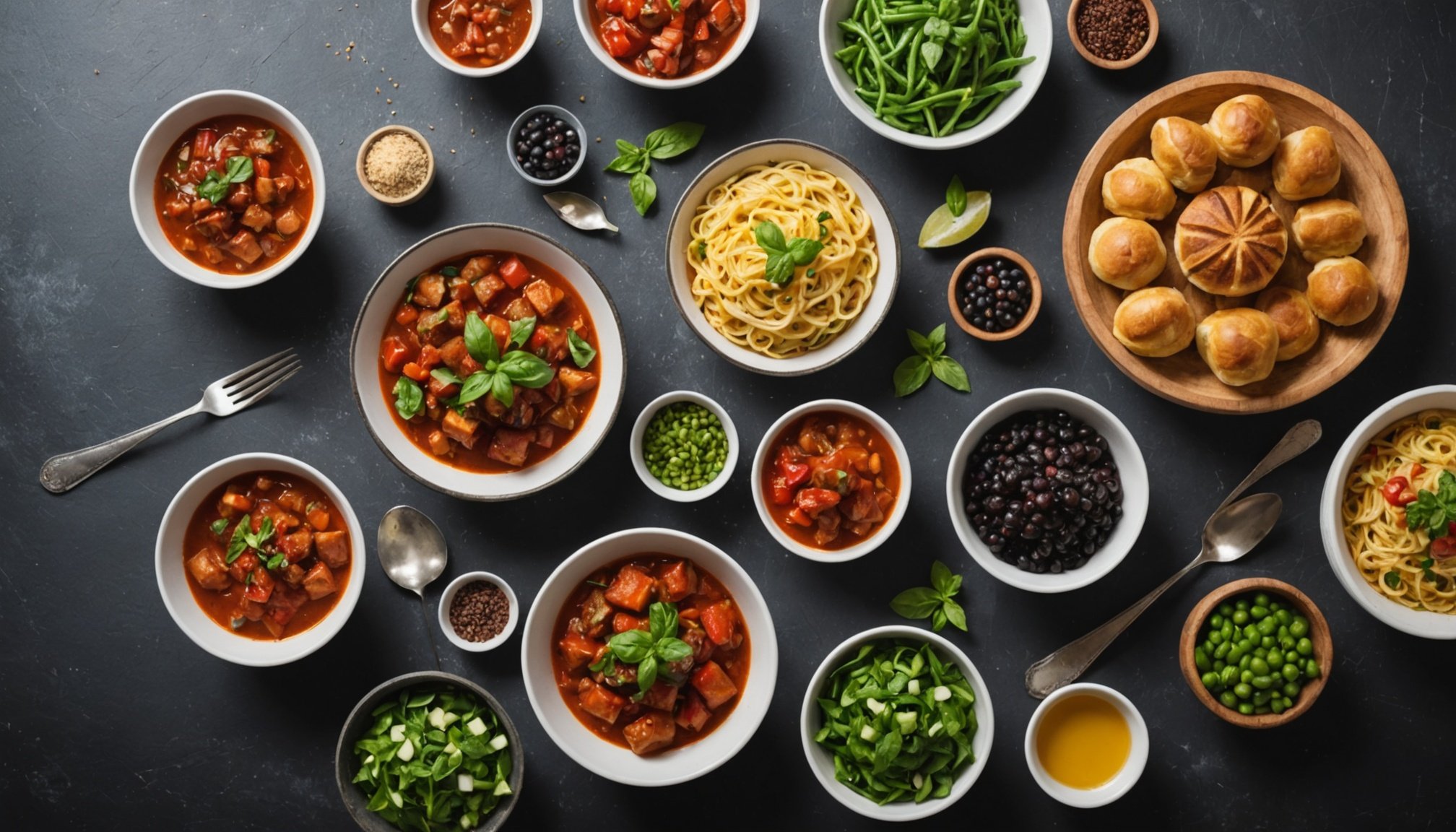Navigating UK Import Rules: Essential Strategies for Starting Your Gourmet Food Business
Starting a gourmet food business that involves importing products into the United Kingdom can be a complex and daunting task. However, with the right strategies and a thorough understanding of the import rules, you can navigate this process successfully and build a thriving business.
Understanding UK Import Rules
Before you begin, it’s crucial to understand the regulatory landscape of importing food products into the UK. Here are some key points to consider:
This might interest you : Establishing a successful organic food marketplace in the uk: your essential guide to navigating local health regulations
Food Safety and Standards
The UK has stringent food safety standards, and all imported food products must comply with these regulations. This includes adhering to the Food Safety and Hygiene (England) Regulations 2013 and other relevant EU and UK laws, even post-Brexit.
"Ensuring food safety is paramount. Your products must meet the high standards set by UK regulations to protect your customers and your business reputation," says Jane Smith, a food safety consultant.
Customs and Tariffs
Understanding customs procedures and tariffs is vital. Since Brexit, the UK has its own tariff system, and you need to be aware of the duties and taxes applicable to your products. You can use the UK Trade Tariff tool to find out the specific tariffs for your goods.
Also to read : Kickstart your urban gardening journey in the uk: a comprehensive guide to understanding local farming regulations
Labeling and Packaging
Proper labeling and packaging are essential. Your products must be labeled in English, and you need to comply with UK packaging regulations, including those related to allergens and nutritional information.
Conducting Market Research
Market research is a critical step in ensuring the success of your gourmet food business. Here’s how you can go about it:
Identifying Your Target Market
Understand who your customers are, what they prefer, and where they shop. This could include high-end restaurants, specialty food stores, or online marketplaces.
"Knowing your target market is key. It helps you tailor your products and marketing strategies to meet their specific needs and preferences," advises Mark Johnson, a market research expert.
Analyzing the Competition
Look at what your competitors are offering and how they are marketing their products. This can give you valuable insights into what works and what doesn’t in the UK market.
Gathering Customer Feedback
Engage with potential customers through social media, focus groups, or surveys to gather feedback on your products. This will help you refine your offerings and ensure they meet market demands.
Developing a Business Plan
A well-structured business plan is the backbone of any successful business. Here’s what you should include:
Market Analysis
Include a detailed market analysis that outlines your target market, competition, and market trends.
Marketing Strategy
Develop a comprehensive marketing strategy that includes how you will market your products, both online and offline. This could involve social media marketing, trade shows, and partnerships with local businesses.
Financial Projections
Make sure to include detailed financial projections, including startup costs, revenue projections, and break-even analysis.
Supply Chain Management
Outline your supply chain strategy, including how you will source your products, manage logistics, and ensure quality control.
Ensuring High Quality and Compliance
Ensuring the high quality of your products and compliance with UK regulations is crucial for the success of your business.
Sourcing High-Quality Products
Work closely with suppliers who can provide high-quality products that meet UK standards. Regularly inspect and test your products to ensure they meet the required standards.
Implementing Quality Control Measures
Implement robust quality control measures throughout your supply chain. This includes regular audits, testing, and certification from recognized bodies.
Managing Import and Export
Managing the import and export process efficiently is vital for your business.
Choosing the Right Incoterms
Understand and choose the right Incoterms (International Commercial Terms) that define the responsibilities of buyers and sellers in the import/export process.
Working with Freight Forwarders
Consider working with experienced freight forwarders who can help you navigate the complexities of international shipping and customs clearance.
Marketing Your Products
Effective marketing is essential to make your gourmet food business stand out in the competitive UK market.
Building Your Brand
Develop a strong brand identity that reflects the quality and uniqueness of your products. Use high-quality packaging, branding, and marketing materials to create a consistent image.
Leveraging Social Media
Use social media platforms to engage with your customers, share recipes, and showcase your products. Platforms like Instagram and Facebook can be particularly effective for food businesses.
Participating in Trade Shows
Participate in trade shows and food festivals to showcase your products and connect with potential customers and partners.
Practical Insights and Actionable Advice
Here are some practical insights and actionable advice to help you navigate the UK import rules and build a successful gourmet food business:
Stay Updated on Regulations
Regularly check the UK government’s website and relevant industry publications to stay updated on any changes in import regulations.
Build Strong Relationships with Suppliers
Develop strong, long-term relationships with your suppliers to ensure a consistent supply of high-quality products.
Invest in Marketing
Invest in marketing to raise awareness about your products and attract customers. This could include online advertising, email marketing, and partnerships with local businesses.
Detailed Checklist for Importing Food Products into the UK
Here is a detailed checklist to help you ensure you are complying with all the necessary regulations:
-
Food Safety Certification: Ensure your products have the necessary food safety certifications.
-
Comply with UK food safety regulations.
-
Obtain certifications from recognized bodies like the Food Standards Agency.
-
Customs Clearance: Ensure all customs paperwork is completed correctly.
-
Use the correct commodity codes.
-
Pay the applicable duties and taxes.
-
Labeling and Packaging: Ensure proper labeling and packaging.
-
Label products in English.
-
Include necessary information such as ingredients, allergens, and nutritional data.
-
Supply Chain Management: Ensure your supply chain is compliant.
-
Regularly inspect and test products.
-
Implement robust quality control measures.
-
Marketing and Branding: Develop a strong brand identity.
-
Use high-quality packaging and branding materials.
-
Engage with customers through social media and other marketing channels.
Comparative Table: Key Differences in Import Regulations Pre- and Post-Brexit
Here is a comparative table highlighting the key differences in import regulations pre- and post-Brexit:
| Regulation | Pre-Brexit | Post-Brexit |
|---|---|---|
| Customs Procedures | Followed EU customs procedures | Follows UK customs procedures, including new tariff system |
| Food Safety Standards | Complied with EU food safety regulations | Complies with UK food safety regulations, which are largely aligned with EU standards but with some differences |
| Labeling Requirements | Labeling in multiple EU languages was acceptable | Labeling must be in English, with some flexibility for other languages |
| Tariffs and Duties | Subject to EU tariffs and duties | Subject to UK tariffs and duties, which may differ from EU rates |
| Supply Chain Management | Part of the EU single market | Outside the EU single market, requiring more complex logistics and customs clearance |
Starting a gourmet food business that involves importing products into the UK requires careful planning, compliance with regulations, and a deep understanding of the market. By conducting thorough market research, developing a robust business plan, ensuring high-quality products, and effectively marketing your brand, you can navigate the complexities of UK import rules and build a successful business.
Remember, staying updated on regulations, building strong relationships with suppliers, and investing in marketing are key to your success. With the right strategies and a commitment to quality, you can make your gourmet food business thrive in the UK market.











